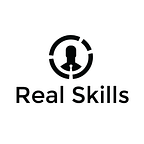Problem-Solving Success — A Real Skills Perspective
One of the most important and transferable competencies needed in the STEM industry is critical thinking in delivering solutions as part of a team.
By Juwin Lee
Problem-solving is an essential skill for the workplace in any industry. Employers value this skill as incredibly important in the hiring process. Over 90% of Australian firms value problem solving as a key competency needed for new hires. Companies see problem solving as indicative of logic, creativity, and determination.
Education in the space of collaborative problem-solving can provide capable and industry-prepared individuals. The STEM Leaders Program run by Real Skills Education is a way for STEM students to grasp the benefits and challenges of teamwork and problem solving. A participant in the program has agreed to share what they have learned about problem-solving and how they discovered their career goals.
Self-Introduction
“Hey there! My name is Profita and I’m studying Civil Engineering at UNSW Australia. I am currently an engineering intern at GHD in the Traffic & Transport Planning team, and previously a cadet for ADCO Constructions. I chose to study this degree due to my interest to quantitatively problem-solve all things civilian, whether that be a skyscraper, road or dam. Like many students often experience, I was constantly asking myself, Is this what I want to pursue for the rest of my life? I was pressured by the limitations of time with the realisation that four years may still be an inadequate amount of time for me to decide. One thing I was certain of was that I wanted to leave the world in a better place than when I entered it. This was my overarching purpose.”
“Having this purpose led me to continually equip myself with a range of skills to become a versatile contributor to society, through joining extracurricular programs at university including Leadership Labs, Volunteer Army, Engineering Industries Program, STEM Leaders Program and Global Consulting Group. It was daunting joining without knowing anyone else at first. I gained engineering industry knowledge, presentation experience and business acumen. Most importantly I gained a unique network of friends from varying backgrounds, whom I have been able to learn a lot from simply through observation.”
About the STEM Leaders Program
“I completed the STEM Leaders Program (SLP) in Winter 2018. Our team comprising five civil engineering students were tasked to design a roundabout and assess the feasibility to cater for the introduction of autonomous vehicles. Our project was assigned by Arcadis, an engineering consultancy firm for natural and built assets.”
“Through my own experiences within completing RSE’s SLP program, as well as other friends’ experiences, I had no doubt that RSE was on its way to bridge the gaps between classrooms and the workplace. I gained skills within engineering problem-solving, client collaboration, resume writing, LinkedIn branding, assessment centres and presentation techniques (e.g. Tony Varghese’s legendary power pose). The project scopes and end solutions have been continuing to grow in terms of complexity, creativity and quality, with students recently developing facial recognition and cardless access technology mentored by Accenture in SLP Summer 2020.”
What did Profita learn?
“The current education system generally has a focus for students to master a set of tools. Though this is somewhat effective, it can often cause a loss of motivation with students questioning their commitment to their discipline. I have also had challenges in translating a majority of knowledge and skills learnt within the education system into the industry workplace. Elon Musk believes in teaching to the problem and not to the tools.”
“To me, this method makes much more sense. And I truly believe RSE is emulating this message through our simulation-based learning approach where students are given real industry projects to work on. It is completely up to them to determine which tools are appropriate for use.”
“I noticed myself gradually developing genuine passion in more real industry challenges including sustainability and autonomous vehicles. As a result of my vision to harness machine learning and data-driven capabilities to problem-solve the above challenges, I was privileged enough to be featured in the Australian Financial Review as a Top 100 Future Leader for 2020. Though these technologies are quite unrelated to the study of civil engineering, it has made me realise that a university degree is merely one of many tools used to solve a greater societal problem. I am currently employing a suite of tools through my research thesis where I will be analysing image data from autonomous vehicles and devising a method to measure traffic.”
What you can take away from Profita’s journey
He has deduced that mastering a set of skills is more effective when these skills can be applied to real-world issues. Problem-solving creates an environment to learn and apply skills towards achieving a defined goal. It is this environment that has allowed Profita to succeed and become a recognised future leader. In order for students to master skills in a problem-solving environment, we aim to upskill students in real-world projects of our STEM Leaders Program every year.
If you’d like to contact us or learn more, check out our socials!
